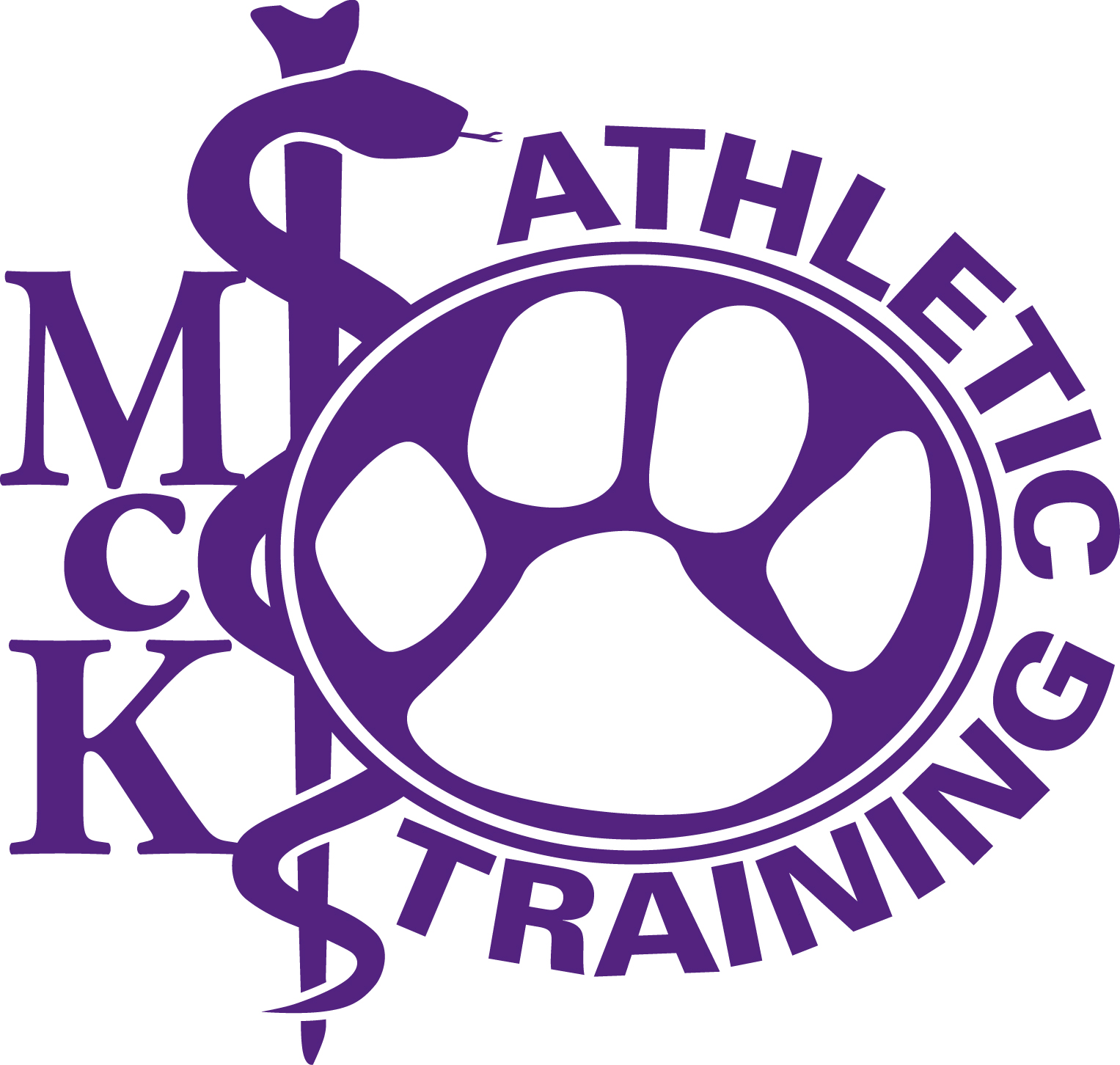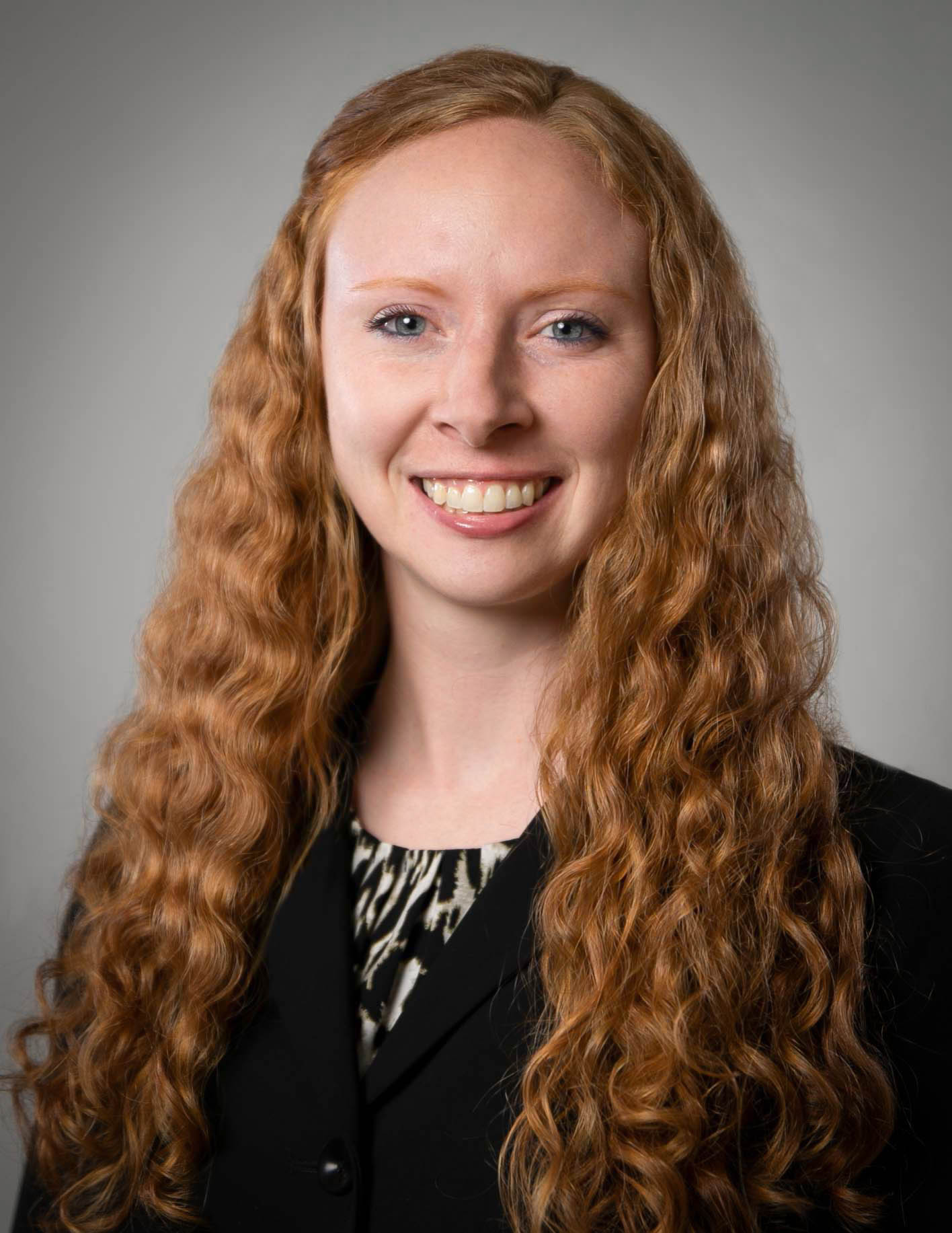Master of Science in Athletic Training(MSAT)
Why a Master of Science in Athletic Training?
The Master of Science in Athletic Training (MSAT) Program is a professional post-baccalaureate
program for non-McKendree students who want to enter the profession of athletic training.
Students enter the program as a cohort. The 54-hour curriculum is rigorous and challenging
combining the 8th edition of the practice analysis by the Board of Certification (BOC),
National Athletic Trainers Association (NATA) Executive Council for Education (ECE),
and the curriculum standards required of the Commission on Accreditation of Athletic
Training Education (CAATE). The two-year program extends over six semesters in a sequential
order involving two 8-week summer sessions and four 16-week sessions.
McKendree also offers a 4+1 Accelerated Bachelor of Science in Exercise Science and Sports Performance and Master of Science in Athletic Training. The 4+1 Direct Entry Route is for first-year
students and transfer students entering McKendree University. This allows students
to complete both the undergraduate and graduate degree in 5 years.
Why McKendree University?
The McKendree University Undergraduate Athletic Training Program was started in 1997
with the hiring of Dr. Dawn Hankins. The first class graduated in 2000. In 2002, the
program received initial accreditation and remained accredited until it was closed
in the spring of 2019. The graduate program in athletic training was started in August
of 2019 and received initial accreditation in 2021.
Over 125 students graduated from the undergraduate athletic training program before
it was closed in 2019. 14 students have graduated from the current graduate program.
Currently, our graduates are employed in a variety of settings including Professional Baseball (Baltimore Orioles, Washington Senators and Kansas
City Royals), Cincinnati Professional Soccer, St. Louis City Soccer, the United States
Military, Boeing Aerospace, Pharmaceutical Sales, Fitness Industry, Orthopedic Medicine,
Family Practice, Hospitals, Sports Medicine Clinics, High Schools and Colleges and
Universities.
Over 65% of our graduates have graduate degrees in other areas including healthcare administration, business administration, medicine, physical
therapy and physician assistant. Other graduates have achieved credentials in nursing,
physical therapy assistant and physician.
The Athletic Training Program at McKendree University combines academic coursework
and diverse clinical experiences, which provides the foundation to prepare students
to be successful as athletic trainers in a variety of work settings. Completion of
clinical experiences allows students to demonstrate clinical skill proficiencies,
while integrating knowledge into clinical decision making, during the performance
of direct patient care. These experiences take place in a variety of settings including
Division II athletics at McKendree University, high school, outpatient rehabilitation,
primary care settings and occupational and industrial settings. Students receive personalized
attention in the classroom with a teacher to student ratio average of 1:12 and the
clinical experience ratio average of 1:2.
CAATE Program Information and Outcomes
Curriculum Requirements
The program is a residency program involving courses that are offered face-to-face
and online.
Required Course of Study 57 Credits.
ATH 500 - Foundations of Evidence-based Practice (3 Credits)
ATH 501 - Diagnostics, Splinting, and Bracing (3 Credits)
ATH 510 - Evaluation & Assessment of Orthopedic Injuries I (3 Credits)
ATH 511 - Evaluation & Assessment of Orthopedic Injuries II (3 Credits)
ATH 512 - Evaluation & Assessment of Orthopedic Injuries III (2 Credits)
ATH 513 - Evaluation & Assessment of Medical Conditions & Illnesses (3 Credits)
ATH 514 - Therapeutic Modalities (3 Credits)
ATH 515 - Clinical Integration I (2 Credit)
ATH 516 - Clinical Integration II (2 Credit)
ATH 517 - Clinical Integration III (3 Credit)
ATH 518 - Clinical Integration IV (3 Credit)
ATH 519 - Clinical Integration V (2 Credit)
ATH 520 - Therapeutic Exercise & Reconditioning I (3 Credits)
ATH 521 - Therapeutic Exercise & Reconditioning II (3 Credits)
ATH 522 - First Objective Structured Clinical Exam (OSCE) (.5 Credits)
ATH 525 - Health & Recovery (2 Credits)
ATH 553 - Pharmacology for Athletic Trainers (3 Credits)
ATH 600 - Seminar I (1 Credit)
ATH 601 - Seminar II (2 Credits)
ATH 602 - Seminar III (2 Credits)
ATH 610 - Healthcare Administration I (2 Credits)
ATH 611 - Healthcare Administration II (2 Credits)
ATH 614 - Research & Professional Behaviors I (1 Credit)
ATH 615 - Research & Professional Behaviors II (3 Credits)
ATH 616 - Second Objective Structured Clinical Exam (OSCE) (.5 Credits)
Format
This program is offered in a campus-based day format. The two-year program extends
over six semesters in a sequential order involving two 8-week summer sessions and
four 16-week sessions.
Tuition & Financial Aid
Tuition for the Master of Science in Athletic Training is $530 per credit hour for
the 2024-25 academic year.
Graduate financial aid opportunities are available.
Online and Graduate Tuition Discounts
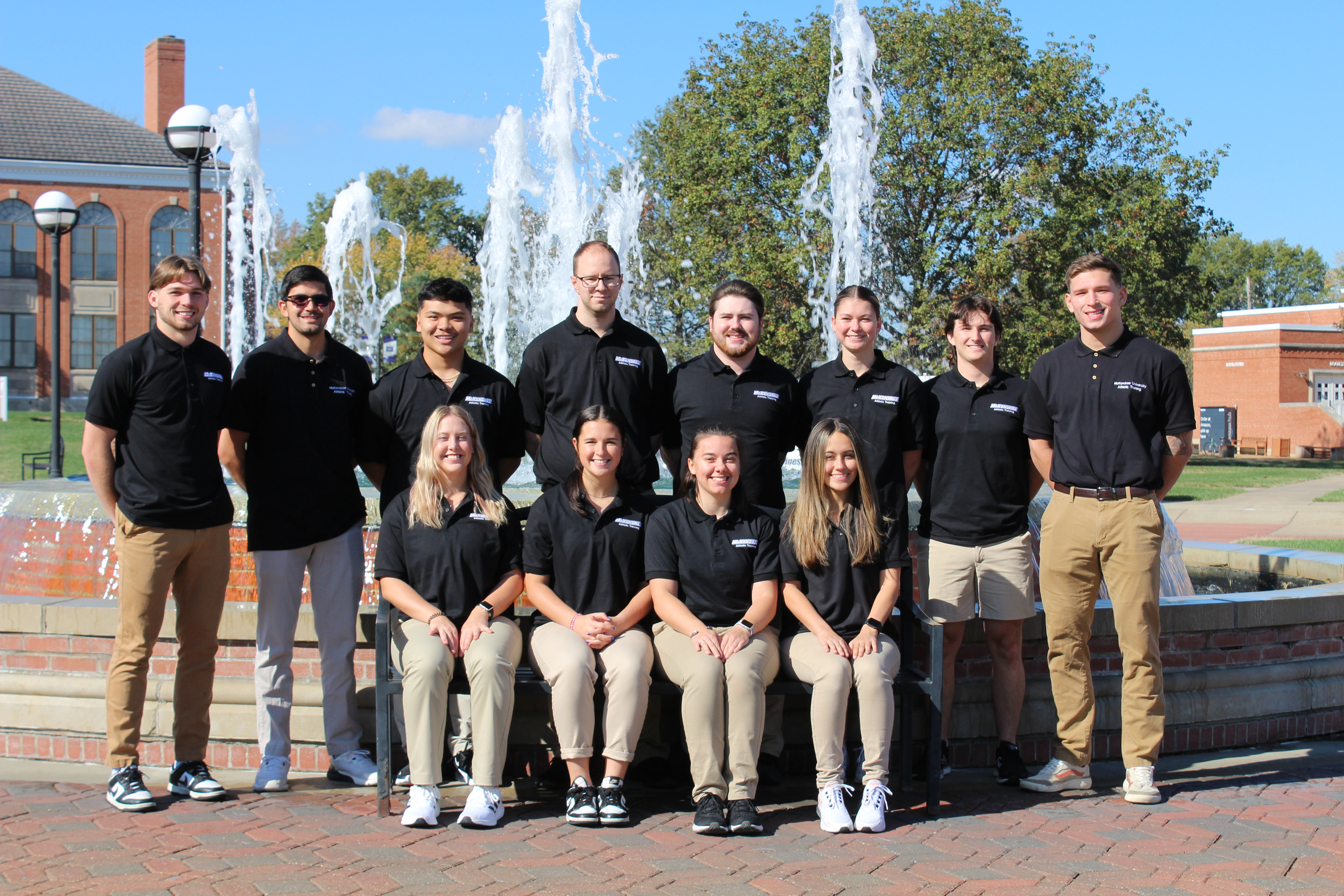
Admission Requirement
McKendree University admits students who present evidence of their potential to complete
graduate level work. Applicants are considered on an individual basis without regard
to sex, race, disability, nationality, sexual orientation, or religion. The following
documentation is required for consideration of admission:
1. A completed application for admission (no fee).
2. A bachelor’s degree from a regionally accredited institution of higher education.
3. Official transcripts from each college or university attended. Official transcripts
are those sent from institution to institution.
4. A minimum 3.0 GPA on a four-point scale in undergraduate studies.
5. Three recommendation forms completed by professors who can comment on your qualifications
for graduate study. They should not be requested from a non-academic person unless
you have extensive work experience with that individual and/or you have been away
from academic institutions for some time. Forms will be emailed to you after you have
applied.
6. A two-to three-page essay identifying: a) personal characteristics, skills and experiences
that make you well suited for professional practice as an athletic trainer, b) primary
career goals, and c) an explanation of how your primary career goals are connected
to the current issues and trends in the profession of athletic training.
7. Technical standards form.
8. A grade of C or higher in the following prerequisite courses:
Human Nutrition - 3 hours
Introduction to Psychology - 3 hours
Health and Wellness – 2-3 hours
General Biology or Principles of Biology (with lab) – 4 hours
College Chemistry (No lab required) – 3-4 hours
General Physics I or II (with lab) – 4 hours
Anatomy and Physiology I and II (with lab) – 8-10 hours
Medical Terminology – 3 hours
Kinesiology – 3 hours
Exercise Physiology – 3 hours
Statistics – 3-4 hours
Principles of Athletic Training (must include taping competencies) – 3-4 hours
Application Deadline
The program admits students once a year, for the summer semester. Applicants should
use the deadline of April 1 in order to receive consideration for admission to the
program.
Applicants who are completing pre-requisite coursework after the April 1 application
due date may apply to the program, however, final review and full acceptance into
the program will not be made until official transcripts showing all required pre-requisite
coursework have been submitted.
If it is not clear from the course title, as listed on the official transcript, that
the prerequisite has been met, the student is asked to provide a course syllabus to
the Program Director. The Program Director reviews the course description, required
textbooks and weekly schedule to determine if the course meets the prerequisite requirement.
The following items are required after admission and prior to registration:
1. Copy of current certification in: a) Red Cross First Aid, b) Basic Life Support for
the Healthcare Provider or CPR/AED for the Professional Rescuer, c) Epipen and d)
Administering Emergency Oxygen.
2. Copy of immunizations - Hep-B, MMR, T-dap, Chickenpox and Meningococcal.
3. Background check through Castlebranch (Certified Background) by May 30.
Career Opportunities
Graduates with a Master of Science in Athletic Training find employment in:
-
College/University
-
Professional Sports
-
Secondary Settings
-
Military
-
Occupational Health
-
Performing Arts
-
Physician Practice
-
Public Safety
-
Health Care Administration & Rehabilitation
Program Highlights
-
You’ll receive personalized attention from a teacher/student ratio for classroom courses of one professor to every 12 students. In clinical settings, the maximum ratio for clinical preceptor to student is 1:2; however, the ratio is frequently one-to-one.
-
Athletic Training Faculty and Staff join together in providing didactic and clinical instruction and supervision to all students.
-
Each student spends 5 semesters in clinical rotations. Three of these rotations involve direct contact with our team physicians. On campus clinical rotations provide exposure to a wide variety of intercollegiate activities including collision, contact and non-contact sports as well as team and individual sports.
-
All students complete a minimum of one off-site clinical experience, which can include: high school, outpatient rehabilitation, primary care setting and/or occupational and industrial settings.
Accreditation
McKendree University is a fully accredited CAATE Program.
Employment
Alumni (74%) of the McKendree University undergraduate and graduate Athletic Training
Program currently work as athletic trainers in a variety of settings including: college/university,
high school, health care administration and rehabilitation (outpatient sports medicine
and rehabilitation), physician practice, military, performing arts (Mixed Martial
Arts), occupational health, and professional sports (Baltimore Orioles, FC Cincinnati
Soccer, Kansas City Royals, Washington Nationals and St. Louis City Soccer). Another
20% of alumni work as nurses, physical therapists, or physician assistants.
Next Step
Contact your student service specialist below and get details on the admission process
and our next start date.
Student Service Specialist
(618) 537-6943
Key Faculty
 Dawn Michele Hankins, Ph.D., LAT, ATC
Dawn Michele Hankins, Ph.D., LAT, ATC
Professor of Athletic Training
Program Director for Athletic Training
Bearcat Hall 102
(618) 537-6917
dhankins@mckendree.edu
Associate Professor of Athletic Training
Clinical Coordinator for Athletic Training
Chair, Division of Health Professions
Bearcat Hall 101
(618) 537-6472
krgayford@mckendree.edu
Assistant Professor of Athletic Training
Division of Health Professions, 300 Stanton St. House
(618) 537-6581
mrmckee@mckendree.edu
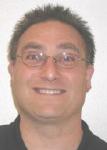
Lawrence N. Stein, M.D.
Medical Director/Team Physician
Adjunct Professor/Clinical Preceptor
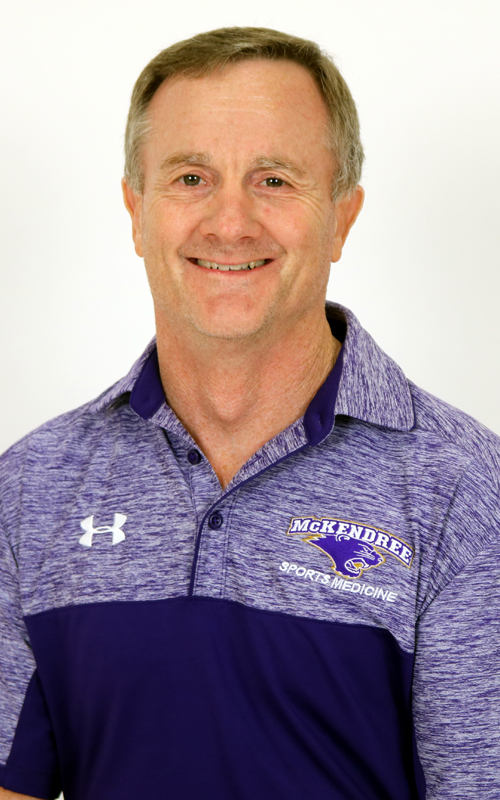
Robert Dizes, PA-C, MPAS
Board Certified Physician Assistant
Adjunct Professor
Websites
Commission on Accreditation of Athletic Training Education (CAATE)
National Athletic Trainers’ Association
Twitter: @McKendreeAT (Dawn Hankins)
Take the First Step Apply Today!
